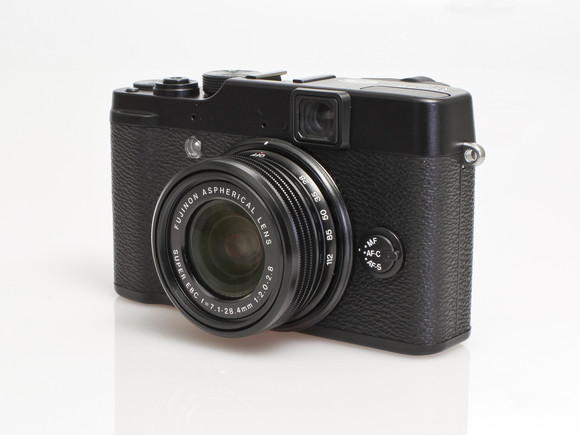Updated: We’ve now subjected the Fuji X10 to a long-term test, and have updated our review with the results. Read the ‘Second opinion’ page to see how we got on.
Fuji created quite a stir when it released its FinePix X100 in March 2011. The combination of a retro-styled metal body, APS-C sized sensor, fixed23mm f/2 lens and a unique hybrid viewfinder caused plenty of interest among enthusiast and professional photographers alike.
No ad to show here.
Now Fuji’s X10 sits below the X100 in the range, sporting similar retro styling, but sacrificing the large APS-C sensor and fixed lens in favour of a 2/3-inch EXR CMOS sensor and a 4x zoom lens providing an angle of viewequivalent to a 28-112mm lens on a 35mm camera.
An impressively bright maximum aperture of f/2-2.8 has been achieved and the zoom is operated manually, carrying on the retro theme.
A positive point to glean from this specification is that the price is much more modest. Costing around £320/AU$635/US$550 at current selling prices, it is much more reasonably priced than its bigger brother, so it will be interesting to see how it fares when it comes to image quality.
Fuji’s EXR CMOS technology uses a different pixel arrangement to conventional image sensors. This enables the camera to either take pictures at the full 12MP resolution, or to combine neighbouring pixels to increase image quality in low light conditions.
Another trick that this unique sensor can pull off is to enable neighbouring pixels to take images at two different ISO sensitivities simultaneously, enabling images with much greater dynamic range to be captured, without having to take multiple frames.
An EXR Auto mode automatically recognises which EXR configuration should give the best results under the conditions, or each mode can be selected manually.
Other features include 1080p video recording and continuous shooting at frame rates up to 7fps, which should be perfect for capturing action.
Enthusiasts will be glad to find that the Fuji FinePix X10 can also record images in Fuji’s RAF raw format, providing extra scope for editing images afterwards. This is a high-end compact camera alright. But the question is, how much editing will you need to do with images from the Fuji X10?
What is the picture quality like compared to rivals such as the Canon PowerShot G12 and Nikon Coolpix P7100, and even the older brother, the Fuji X100?
